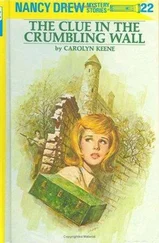“So, am I dying?” Frannie snaps when they come back into the room.
“No, mother, but you’ll have to be careful with your heart.”
“Oh! My heart! You know very well that my heart stopped years ago. When I lost your father.”
Simon freezes. His wife tells him that when he does this he looks like a dog. When he pricks up his ears he stops moving altogether. He waits to catch sight of the game. But Frannie changes the subject. For a hundredth, a thousandth time, the answer eludes him; the hare dashes off into the tall grass, where Simon never ventures to go. The truth about their father is a wily, agile prey despite its weight. His and Carmen’s personal Moby Dick. One of Frannie’s lifetime exploits will have been to mention their father almost every day without ever revealing his identity. Still today, at forty-three and forty-five years of age, brother and sister regularly call each other in the middle of the day or night to share a new, occasionally credible clue but more often than not a piece of science fiction. A man on the bus who looks like them. A torn letter found in Frannie’s things. A sibylline remark made by an old friend of their mother’s.
Claire finds these inquiries and late-night phone calls hard to bear. She is a down-to-earth woman and believes that people who reach middle age without knowing their father can very well go on living in the state of ignorance around which their lives have been built. “Get over it, for goodness sake!” What she is more loath to express is her exasperation at how much room this quest takes up and at the exclusive bond it nurtures between her husband and sister-in-law. A shared struggle she can neither take part in nor understand.
As Simon looks at his mother, he suddenly feels he can see it, the poor organ ravaged by the years, a heart glowing wanly through her chest, asking for attention, for Frannie’s acts of meanness to finally be overlooked so that this rusted muscle, at once guilty and innocent, may be touched. He averts his eyes.
Frannie has retrieved her stuffed cat, which this time she has entirely removed from its wrapping, thereby disclosing that half its tail is missing.
“What in the world happened to it?” Carmen asks.
“I don’t know. The girl is coming by soon to bring me the missing part. I’m sure she tore it off to take revenge. She must be jealous.”
“Right,” Carmen sighs, trying to imagine the adorable student who minds her mother three days a week tearing off Bastard’s tail while Frannie was napping.
“I should always check what’s in her bag when she’s leaving,” Frannie adds. “They’re all thieves, those black women.”
“Mother!”
Carmen refrains from reminding her mother how much she herself was the victim of prejudice, and especially how she hated being subjected to those humiliating searches when she worked as a cleaning lady for the rich folks living in the hills. That was how she came to relieve her employers of their possessions. “They already take me for a thief, so what’s the point of being honest?” She was crafty and took only small objects, which she hid where she was sure not to be inspected: in her bra, between her then ample breasts. Simon tearfully rejected the toys she brought them, and Carmen ended up returning them to their owners on the sly. The story of her childhood: tacking between her mother’s misdemeanours and her brother’s inflexibility. She herself is amazed at having grown so upright. It seems to her she should have developed like those twisted trees that climb toward the sun while trying to escape from the insects.
Frannie is talking to the cat and the tension eases in the room; even the medical devices appear to be less fussy. Simon taps on his telephone, the nurses go by the room without stopping, and Carmen thinks she can hear the muscles of her mother’s heart contracting, stubborn and resistant. Unless it’s her own heart she hears.
Then the beating becomes more distinct and rapid, like an underground drumroll. For the second time this evening, Simon and Carmen exchange a tectonic look and, in unison, position themselves on either side of their mother, their bodies arched above her brittle limbs, praying for the ground not to open up beneath her bed. Frannie starts yelping, hugging Bastard tightly against her stomach, as the tremor seizes the entire building. The aftershock is more powerful than the initial earthquake — that, at least, is the impression conveyed by the vibrations rippling through the hospital. “There it is! This is it! The big one!” Frannie screams, before choking with a harrowing groan. Carmen grips the sides of the bed and tries to locate something stable, but her gaze registers nothing but movement. Even Simon appears blurred. She shuts her eyes.
When the tremor finally ends she is astonished to find the room practically intact. Then she straightens up and realizes she is mistaken. Eyes staring blankly, mouth agape, skin gone grey — Frannie is not intact. In a flash, Simon hits the emergency button and leans over her.
“She’s not breathing.”
He confidently begins to give her a heart massage. Moments later, a nurse arrives, exchanges a few words with Simon and immediately heads off to find a doctor. Carmen steps back with her thumb stuck between her teeth. The California coast has undoubtedly not sunk into the Pacific, but Frannie was right: this was indeed her big one.
When the doctor leaves the room, Frannie is still unconscious but under the sway now of a new cocktail of intravenous drugs. Her face is unrecognizable. Simon remembers when Claire’s father died a few years earlier. His features metamorphosed in the same way. It was as if some crucial chunk of the person had broken off, like the collapse of part of an ice field that leaves the whole disfigured. That’s what this heart attack was. The massive blow, the point of no return. From out of nowhere the tears well up and he turns away to hide them from Carmen. But she steps closer to him all the same and takes him by the shoulders.
“You saved her, Simon.”
“I don’t know.”
Is it really saving someone when she is very old, disease-ridden, filled with gall and bad blood to the point of paralysis? He did nothing but what he is conditioned to do: sustain life, maintain the order of things. Not let his mother die, no matter what. He curses his reflexes and curses himself for being unable to prevent the tremor, for not having foreseen the aftershock.
“If she had been sedated she wouldn’t have felt the earthquake. Her heart wouldn’t have given out.”
“It would have given out sooner or later. The doctor said so. It’s an old, worn-out muscle.”
A new medical team takes over the room to carry out further tests, and Carmen suggests they go have a bite in the cafeteria. Frannie’s condition is stable and, in any case, they’re obliged to leave the room. Simon realizes he’s famished and accepts. They find themselves once again walking along corridors cluttered with debris though looking less devastated than Frannie. When they reach their destination the door is locked. They’re told the tremor set off a small fire. The kitchen is closed until further notice.
They fall back on one of the many all-night taquerias near the Berkeley campus. Carmen takes the wheel and slaloms in and out of the branches and empty trashcans littering the streets, amid clusters of excited, zigzagging students. “You’d think it was Halloween,” she remarks as they enter the restaurant.
During the meal not a single word passes between them. Simon has an idea of what is going through his sister’s head. He remembers all too well Carmen’s Berkeley years. He would come to visit her, sleep on the floor of her co-op room, a squalid cubbyhole she shared with a corpulent girl whose snoring was horrendous; he woke up every hour, afraid of being attacked by a rat. At the outset, Carmen had planned to devote herself to mathematics, but after the first year she opted instead for Women’s Studies. She shaved her head and joined the row of activists who lined the campus’s main road and handed out radical leaflets to passersby on behalf of a small circle that published a monthly titled Queen Sappho . During that same period, Simon enrolled in the police academy and looked on his sister’s new interests with suspicion, especially after she was arrested while taking part in a rally. But he never stopped visiting her, and Carmen never once trotted out for him her anti-patriarchy spiel. Their relationship steered clear of the gender war.
Читать дальше











